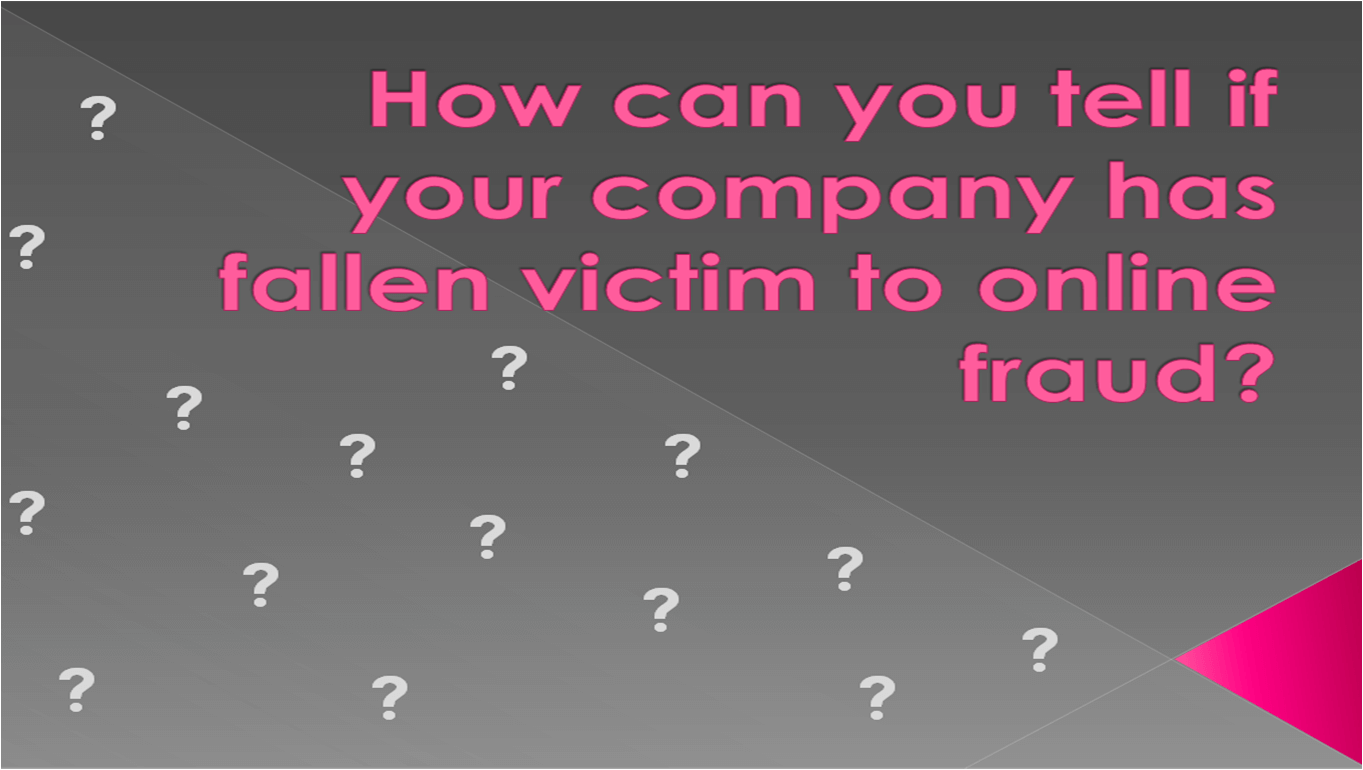How can you tell if your company has fallen victim to online fraud?

source: own elaboration
We talk a lot about online scams, but how do you recognize that they concern your business? Unfair competition, fraud publishers, owners of similar websites, and even malicious customers and former employees - there are many people who could want to harm your company, and there are even more ways to do it. Below are some indicators that may mean that your company has fallen victim to online fraud.
A large number of negative ratings and comments in a very short time if there were no significant performance drops on the side of the company.
If your business has suddenly received many negative ratings or (and) comments, it could also be a sign that you have been the victim of fraudulent activities. Especially if such reviews relate to products that the company doesn’t offer or people who aren’t employed in it. Very poor grades that doesn't include any justification may also be suspicious. This may indicate that they are added in an automated manner, i.e. by bad BOTs, or farms specialized in adding massive amounts of opinions.
Much more traffic to your site without additional marketing activities.
If you haven't undertaken any additional marketing activities, and the number of visitors to your website suddenly soared, it may indicate the activity of BOTs on your website. This can be very dangerous for you - such BOTs can prepare for an attack, try to steal information about the website and its visitors or copy the content on the site in order to use it unlawfully. Of course, the disturbance of such statistics can be due to many factors, so it's worth analyzing such traffic carefully. If a large part of it comes from countries where you don't carry out any marketing activities, it will be a clear signal that something is going on. Similarly, if the visiting hours of the website differ significantly from those average or the profile of visitors is not consistent with that typical for your site.
Your content appearing on other pages.
If on other websites devoted to similar topics you come across a content that is reminiscent of the one you are publishing, you can almost be sure that you have fallen victim to fraud - especially if it concerns a significant part of the content on the site, or several sites simultaneously. Bad BOTs, i.e. programs created to perform certain tasks in an automated manner, can copy content from one page and place it on other websites, often created by themselves. Thanks to this, they unlawfully use content carefully prepared by others.
Faster Google Ads budget clickout while sales from it fall.
If you use Google Ads, you certainly set the budget for a given campaign, i.e. the maximum amount of funds you want to spend on it. If you notice that a particular campaign is clicking out much faster than before, but it hasn't generated more sales, it could be a sign that someone is click spamming on your ads. For smaller companies, it can be done by a dishonest competitor, a disappointed customer or a former colleague, and this will be very difficult to diagnose. Theoretically, a greater number of clicks by such a person should be classified as duplicates, but if the fraudster took care of the variability of his IP address and other parameters, he can easily fool Google's filters - especially since the clicks come from human. In the case of large companies and large numbers of such clicks, we will probably deal with automatic traffic (bad BOTs). In addition, even if artificially generated clicks are finally considered false, you can still have to temporarily suspend campaign. However, we should remember that there may be many reasons for faster exhaustion of the Google Ads budget (e.g. seasonality, more expensive keywords etc.), so it is worth making sure first that the changes they weren't resulted from other reasons. That's why we recommend carefully analyzing clicks generated using Google Ads.
A lot of invalid traffic from affiliate marketing.
Affiliate marketing, popular in many industries, is unfortunately very susceptible to fraudsters. Regardless of whether you use it to generate leads, impressions, clicks, registrations, application downloads or sales - you may find yourself working with a dishonest publisher. How to check it? First of all, check the statistics about individual sources. If you receive traffic directly from an affiliate, ask your guardian for more detailed information. If the increase in the amount of incorrect traffic affects all publishers, then the reason is probably different (or you have to deal with a fraudulent affiliate program), but if one or few partners generate particularly high number of false user activity for you, it will be a signal that they are probably fraudulent.
An essential sign will also be an increase in number of people not interested in the offer. Remember that in addition to publishers that provide you with false data, there are also those who provide real data, but without the user's knowledge - for example, unlawfully completing forms with their data. So you should make sure that every source that provides you with traffic collects relevant consent from users and informs them what they intend to do on their behalf.
Of course, there can be many signs that a company has fallen victim to dishonest online activities. Above we have listed those in our opinion the easiest to recognize. If you are afraid that you may have fallen victim to fraud or if you don't have time to analyze individual statisticians, you should invest in protection against such activities. It will help reduce costs and significantly increase the efficiency of your marketing activities. To learn more - contact TrafficWatchdog.pl, all information can be found in the contact tab.

